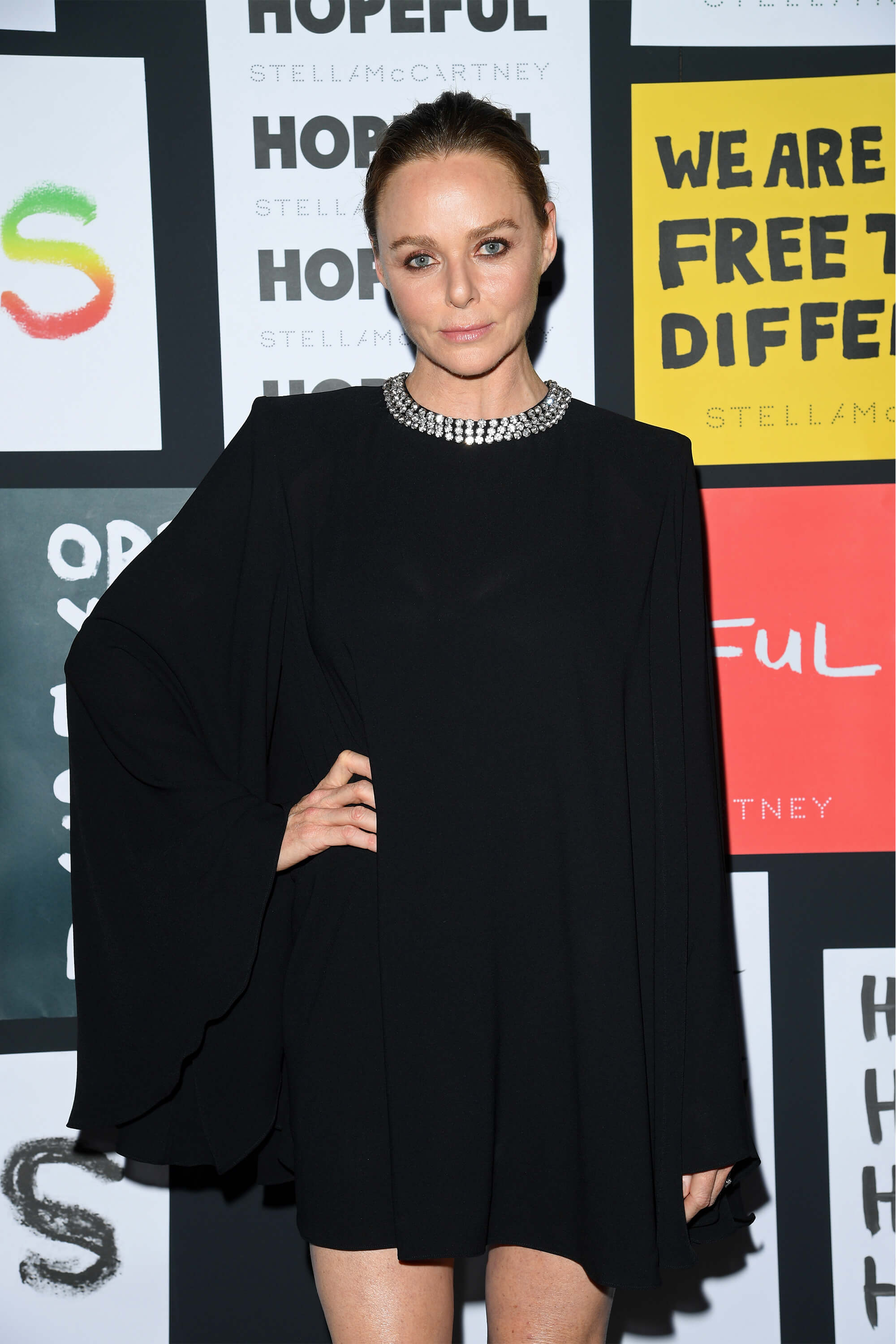Key takeaways:
Stella McCartney is launching Koba, which claims both a lower carbon footprint and more luxurious feel than existing faux fur alternatives.
The new LVMH partner is open to helping other brands adopt Koba, which it hopes will become an industry standard.
McCartney’s partners are working on new generations of the faux fur in order to give designers more options.
Stella McCartney’s Spring/Summer 2020 show in Paris on Monday will feature a selection of coats, but one noteworthy piece won’t even make it down the runway. Held backstage for a private photo shoot, the coat, made from a corn byproduct blended with recycled polyester, marks the debut of bio-based faux fur Koba in the eco-friendly designer’s repertoire. It could also be a game-changer for the industry.
While brands like Gucci and Burberry have transitioned away from animal fur, existing alternatives are made from petroleum-based products. Current faux fur options are made from modacrylic, which is used in higher-priced markets, and polyester, which can be recycled but is lower in quality. The corn-based component in Koba promises to both reduce the material’s total carbon footprint while elevating its quality to a calibre that fits the needs of a luxury brand.
“Polyester isn’t the same quality that we want, and the modacrylic doesn’t give us the sustainability that we want,” says Claire Bergkamp, Stella McCartney’s worldwide director of sustainability and innovation. “This is kind of bridging that gap.”
Stella McCartney plans to roll out Koba coats to stores sometime in 2020. It is the first major sustainability-related announcement from Stella McCartney since LVMH acquired a minority stake in the brand in July and designated the namesake designer a special advisor on sustainability to the luxury group. The relationship is too new to say how this material will feed into any of LVMH’s other brands says Bergkamp, although she adds that Stella McCartney is keen for Koba to become an industry standard and happy to talk to any interested labels.
“This has to be a collaborative effort. It is a moment of climate crisis — and it is a genuine crisis,” Bergkamp says. “We want to show what’s possible, and show that these sustainable improvements can be beautiful [and] luxurious.”
The number of A/W19 products currently in stores that feature faux fur has increased by 24 per cent year-on-year, according to Edited analyst Kayla Marci. Alternative fur items at luxury price points increased by a slower 13 per cent — with synthetic fabrics like modacrylic and polyester being the materials of choice.
McCartney, a longtime animal advocate, has always shunned real fur for ethical reasons, but the quest for eco-friendly substitutes has been an elusive one. Koba is a collaboration between Stella McCartney; Ecopel, a faux fur developer that is also an existing supplier; and Dupont, the chemical conglomerate. Initial conversations between the partners began about two years ago. On the technical side, Koba took 10 months to create, says Arnaud Brunois, a spokesperson at Ecopel.
According to Dupont, the bio-based material uses up to 30 per cent less energy and produces 63 per cent less greenhouse gas emissions than polyester. Koba, which is 37 per cent bio-based and 63 per cent recycled polyester, is also recyclable with other polyester products, says Brunois.
Dupont and Ecopel are already working on new generations of Koba, which Bergkamp explains will expand its versatility. For instance, this could allow designers to offer faux fur in different lengths, further boosting the creative team’s options.
That, ultimately, is Stella McCartney’s main goal. “We want to give people the option to look the way they want to look and do it in a sustainable way,” says Bergkamp.
Correction: An earlier version of this story incorrectly stated that Stella McCartney would show a selection of faux fur coats at its S/S 20 show. (2 October 2019)
Editor's note: An earlier version of this story indicated that Stella McCartney would preview two Koba coats.The brand subsequently decided to show one. (30 September 2019)
To become a Vogue Business Member and receive the Sustainability Edit newsletter, click here.
Comments, questions or feedback? Email us at [email protected].
More from this author:
Fashion’s uphill quest for 100% carbon neutrality
